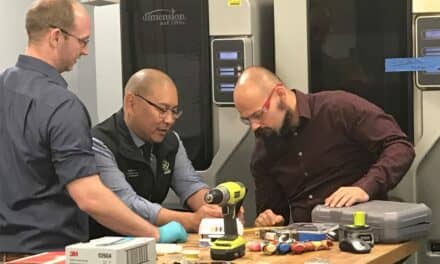Cardinal Health launched an inventory reserve program that helps labs and health systems more accurately pre-order respiratory diagnostics before the onset of seasonal flu, strep, and respiratory syncytial virus.
This new program is designed to provide clearer demand signals to the supply chain ahead of the season, which helps reduce the friction felt across the healthcare landscape as the season ramps.
Cardinal Health’s New Program
The Cardinal Health Laboratory Products Reserved Inventory Program is available for labs and facilities nationwide. Individually tailored to participants, the program leverages data, such as historical utilization, to more accurately predict inventory needs. This approach offers supply assurance for an often-unpredictable respiratory season further complicated by virus co-circulation and COVID-19 surges and potential new variants.
“The Reserved Inventory Program is designed to address the variability and erratic nature of the respiratory season for labs and health systems; it’s a mechanism for a more consistent supply of respiratory testing products amid ongoing supply challenges,” says Emily Berlin, vice president of Product Marketing and Management for Cardinal Health Laboratory Products. “Most importantly, it puts the focus back to where it matters most for labs: the diagnosis and treatment of respiratory illnesses.”
The Reserved Inventory Program launches on the heels of a successful pilot program, which took place in the 2021-2022 respiratory season – a time when a KaufmanHall survey (1) says 99% of U.S. hospitals and health systems experienced challenges in supply procurement. In a 2022 Cardinal Health survey (2) of pilot participants, most reported fewer inventory constraints after participating in the Reserved Inventory Program and reported being very satisfied and likely to recommend the program to a peer.
“There is no way of knowing with certainty when or if particular viral illnesses will spike, but laboratories must be prepared regardless,” says Tekita Mckinney, MT (ASCP) M.Ed., infectious disease and PCR laboratory manager at LeBonheur Children’s Hospital in Memphis, Tennessee, who participated in the pilot program last year. “The multi-year analytical insights we gain through the Reserved Inventory Program save my lab time and help increase our accuracy as we seek to predict future usage before respiratory season begins. It has given us more certainty and helped us avoid backorders and delays.”
How the Program Works
“The Reserved Inventory Program is unlike other traditional inventory management programs in the market,” Berlin says. First, Cardinal Health provides a customized utilization report that details a customer’s historic utilization, enabling them to make informed decisions on how much inventory to reserve.
Cardinal Health then works with suppliers to procure a specified quantity for each individual customer, based on the customer’s identified volume for the upcoming season. Identifying customer anticipated testing needs provides select manufacturers demand signals in advance of the traditional respiratory season.
Products that are ordered through the program are held by Cardinal Health in reserve until the lab or facility requests them—and customers are guaranteed the quantity reserved. Additional levels of inventory management options are available, including stock rotation and inventory commitment release, which provide flexible options upon program enrollment.
Sources:
1. October 2021. KaufmanHall. 2021 State of Healthcare Performance Improvement: COVID Creates a Challenging Environment.
2. 2022 Cardinal Health data on file.





